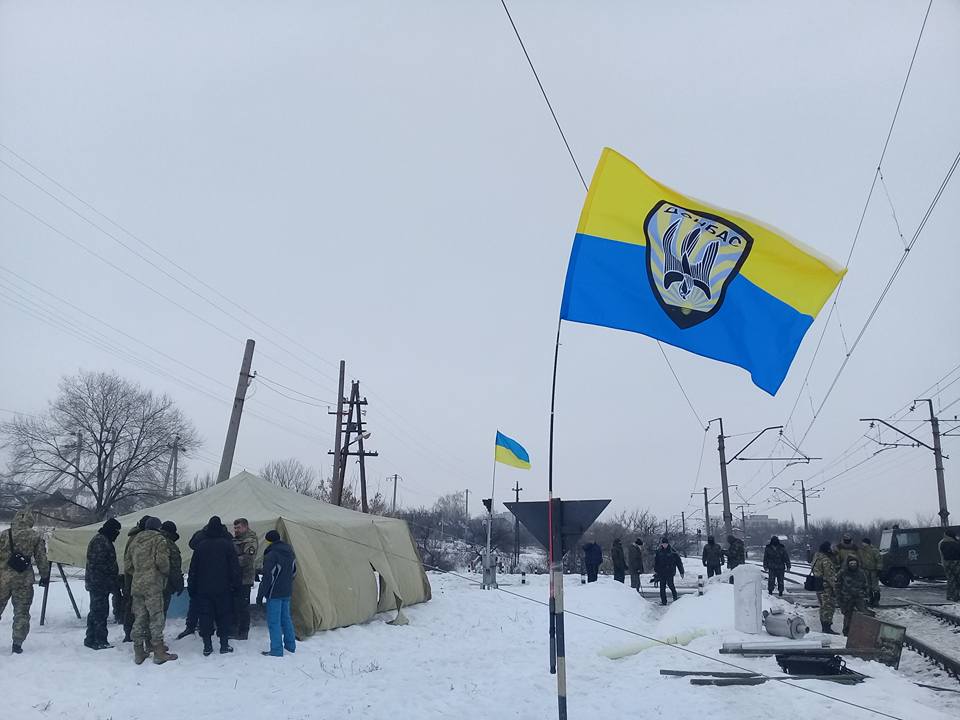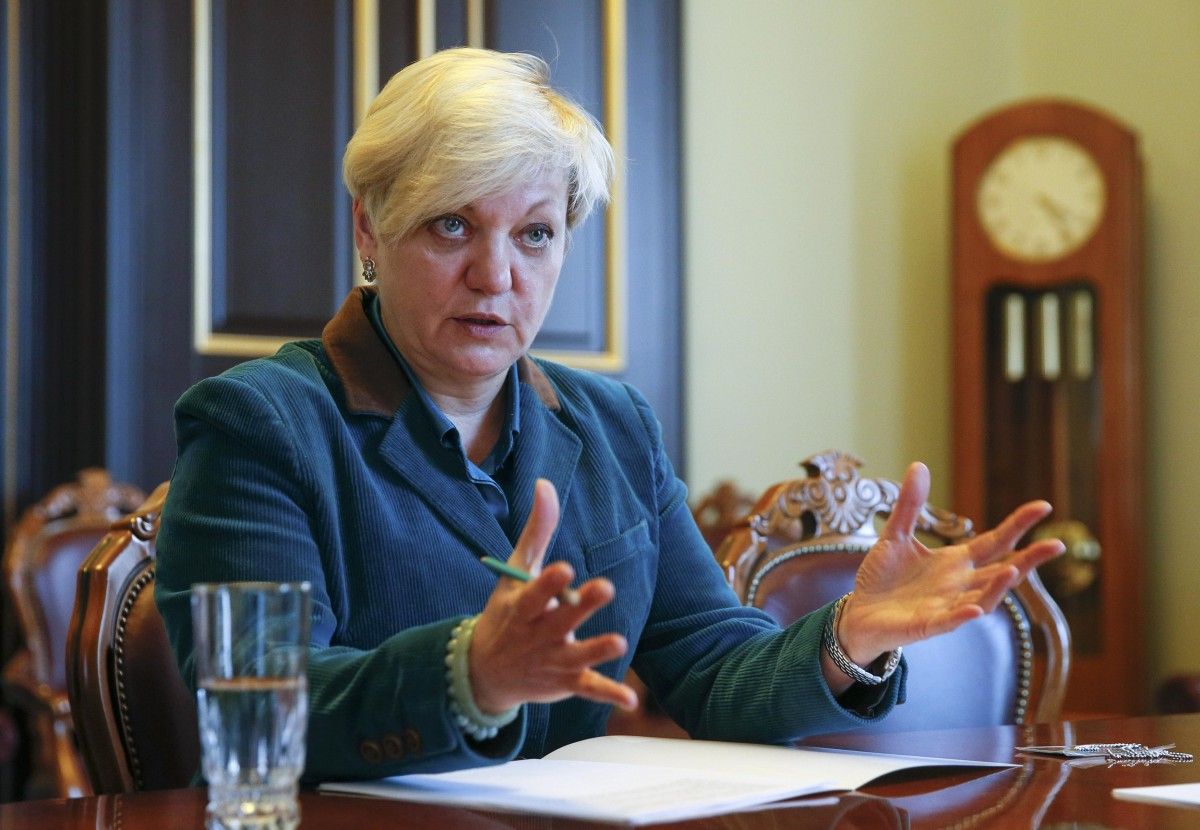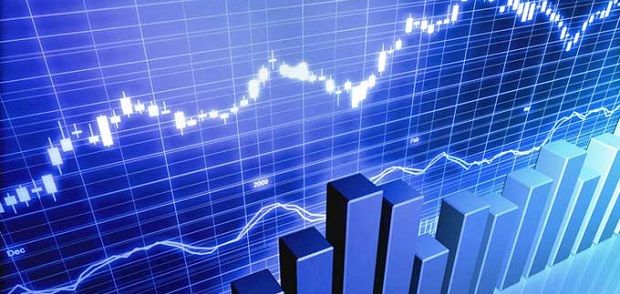
Week’s balance: Blockade causing losses, NBU’s anti-crisis measures, and increased industrial output
The Ukrainian Cabinet reports the negative consequences of the blockade of the occupied territories in Donbas, while the National Bank is even preparing, just in case, a package of anti-crisis measures in this regard; however the State Statistics Service shone some light this week reporting on a January growth of industrial output - these are the main economic news of the outgoing week.
The blockade by a group of ATO veterans of the occupied territories in Donbas remained a dominant issue throughout the week. However, now the accents have shifted. Earlier, major debate regarded those who benefited from the introduction of a notorious "Rotterdam +" coal pricing formula, who earned another UAH 10 billion within a year, according to experts. Now the blockade’s opponents are getting increasingly vocal over its negative consequences.
Obviously, the first fiddle was played by Metinvest Group owned by oligarch Rinat Akhmetov, stating that two of its companies located in the occupied areas of Donbas suspended operations. That is, Yenakiyeve Steel Plant and Krasnodonugol, ensuring production of coking coal for Akhmetov’s steel industry. The group emphasized that both companies were legally registered in the government-controlled territory, paying all taxes and statutory fees to the state budget.
As a result of the blockade, Alchevsk Iron and Steel Works (AISW), owned by Russians, has also halted operations. Over the past week alone, the company under-received $21 million in foreign exchange earnings due to the downtime. Besides, the AISW now cannot supply the material required for production at the Dnipro Steel Works. Because of this fact, the latter cut production this week, losing some $20 million in revenues.
Thus, the companies have no choice but to look for new suppliers of raw materials. Industrial Union of Donbas Corporation has already announced the beginning of diversification of coke supplies to the Dnipro Steel Works, saying they were purchasing part of coke required from EVRAZ Yuzhkoks and from Poland to ensure continued operations. It was also noted that due to lack of working capital and a high cost of coke, the supplies of raw materials are irregular.
Meanwhile, Prime Minister Volodymyr Groysman during his visit to Kharkiv region has once again called on the blockade activists to stop the rally and expressed full readiness for the joint fight against smuggling. "Energy blockage can lead to two negative consequences. First is blackouts. In just a few weeks we can use up all coal we’ve accumulated. Another negative factor is a halt to metallurgy, which forms 12% of GDP and 20% of foreign exchange earnings. This would undermine the exchange rate of the national currency, leading to a grave destructive consequences,” said the head of government. “I once again appeal to the blockade activists: I am against the smuggling and power abuse. But it’s impossible to reorient the economy within a year, or two, or three. I call upon true patriots to think about ordinary Ukrainians."
Groysman emphasized that the metallurgy halt is not just about the loss of jobs and foreign exchange earnings, but also the lack of raw materials for the production of weapons, railcars, and other products for the domestic market.

Meanwhile, it seems that the government is set to wait until ATO veterans cease the blockade and the transportation of the much needed deficient coal will resume. How else can we explain the fact that there is still no answer to the main question - when will the anthracite coal be delivered from abroad? Have any agreements been signed already? Are there any negotiations being held at all?
It was Energy Minister Ihor Nasalik who was expected to address these questions. But during his parliament speech, he once again chose to debunk myths and criticize distorted reports.
At the same time, according to Ukrenergo, the operator of the country’s united power grid, anthracite coal reserves at the warehouses of thermal power plants will ensure stable operation of the power grid and prevent emergency blackouts until March 20, 2017.
In turn, the emergency measures have had a huge impact on the structure of electricity generation - thermal generation shrank to 18.2% in the total structure of production as of February 24, while the nuclear industry boasted 61.8%. Energoatom on February 18, 2017, produced a record volume of electricity over the past 13 years, which is 302.9 million kWh. Following the repair works and replacement of turbine condenser equipment at the second power unit of the Yuzhnoukrainska nuclear power plant, its capacity has been increased from the set value of 1,000 MW to 1,050 MW.
Gontareva’s "rainy day scenario"
The national bank has joined the government’s crisis prevention efforts in connection with the ongoing blockade of Ukraine's trade with the militant-occupied territories of Donetsk and Luhansk regions. According to NBU Governor Valeria Gontareva, such measures may be necessary if foreign exchange inflows into Ukraine are reduced. As a result, the businesses will have to forget about the plans on forex liberalization.
"Of course there could be negative consequences for our balance of payments," central bank Governor Valeriia Gontareva said in an interview with Reuters. "We may see a drop in steelmakers' foreign currency revenue. This could amount to maximum $2 billion, according to our top estimates."
NBU chief also said that last week in Washington she had discussed with the IMF what steps should be taken in case of significant intensification of the Donbas. "Our baseline scenario is that everything is working for now, but we have a rainy day scenario," she said. "If steelmaking stops we will take anti-crisis measures."
The head of the NBU has not disclosed the plan’s details, although everything is pretty much clear. The regulator has already tried out a set of tools and methods back in 2014-2015, at the height of the Donbas fighting, when the hryvnia exchange rate broke its historical record because of the panic.

By the way, the IMF has not yet scheduled a date to consider the allocation of another ($1 bln) loan tranche for Ukraine under the Extended Fund Facility, while the Ukrainian authorities claim the decision is to be taken soon. The IMF spokesman has only stated that a debate is ongoing on Ukraine’s pension reform, the reform of public administration and, of course, the fight against corruption.
State Statistics Service reports growth
This week, the State Statistics Service has published the results of the industrial performance in the first month of 2017. According to the agency, there was a 5.6% growth of the industrial output in January 2017 as compared to the same period last year. At the same time, compared to December 2016, the industrial output dropped 17.5%. Predictably, the largest fall in this period was observed in the chemical industry (8.9%) and manufacture of coke and refined petroleum products (7%).
In addition, according to the State Statistics Service, retail trade turnover in January 2017 increased by 3.1% compared to the same period of 2016 – up to UAH 52.9 billion.

Chief economist at Dragon Capital Olena Belan believes that the pace of recovery in Ukraine’s consumer demand should be accelerated following the end of the heating season and reduced utility bills.
According to her, so far, neither the improvement in consumer sentiment (up to 57 points in December, the highest level since the first serious escalation of the conflict in the east in mid-2014), nor the doubling of the minimum wage since January this year, were able to influence the consumption statistics of Ukrainian households.
Belan also noted that consumer demand and investment will be the engine of growth of the Ukrainian economy in 2017.
"According to our forecast, real GDP will increase by 2.5% (yoy) in 2017 after the estimated 2.2% in 2016," she said.
Next week, spring is coming along with the last month of another difficult heating season, which we hope will be a lesson for the government. Indeed, we need to start accumulating coal as early as summer.
Ihor Orel (UNIAN)

